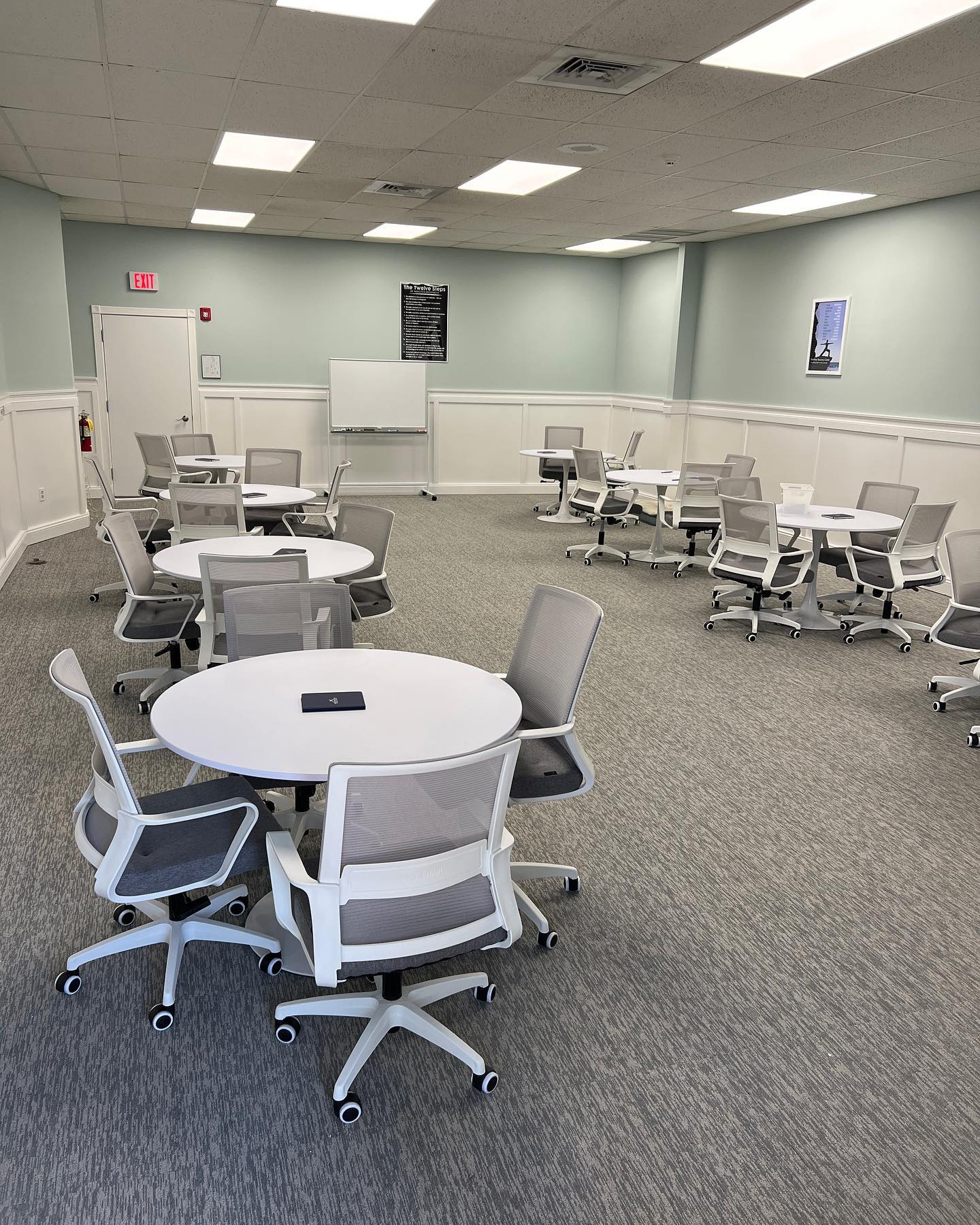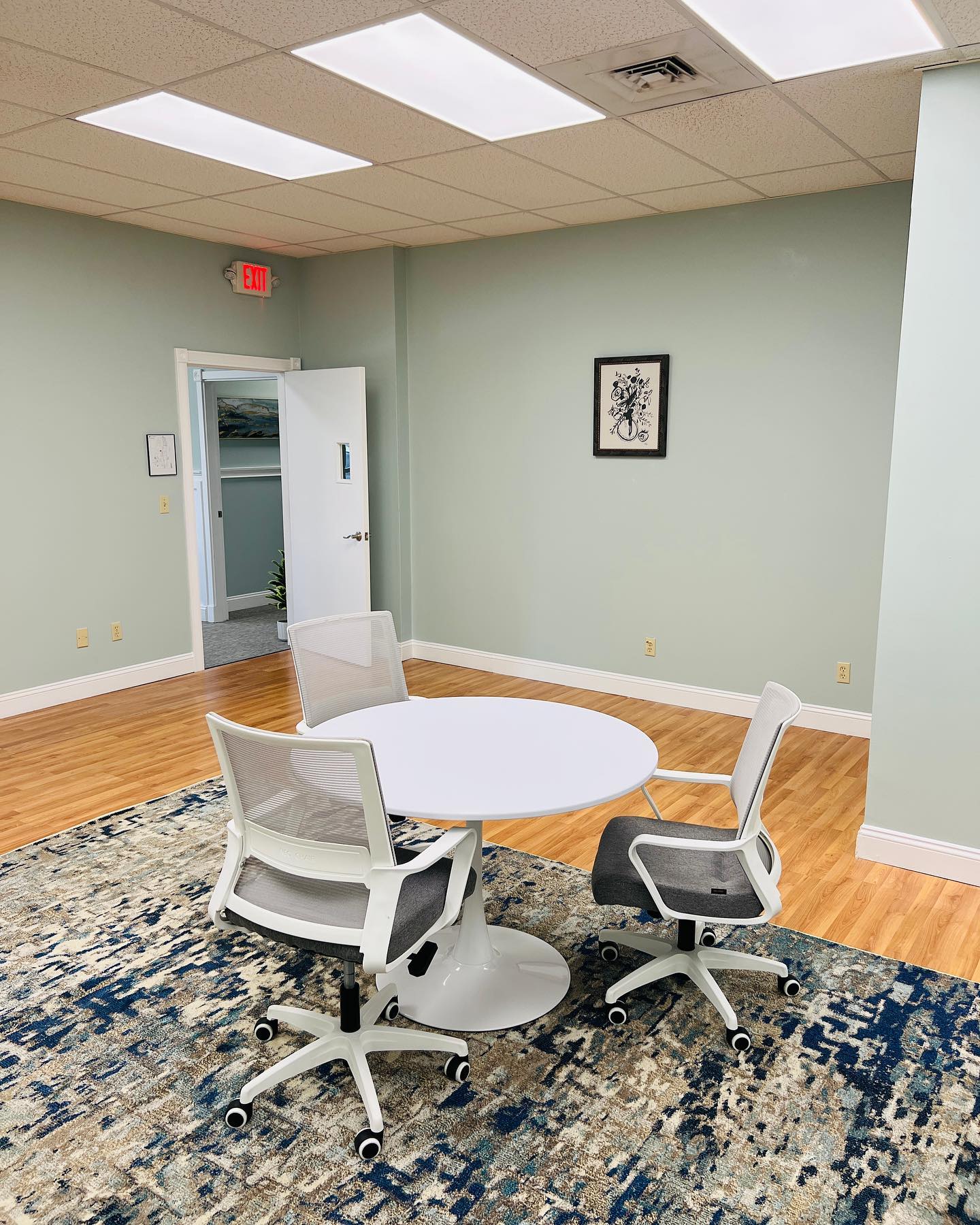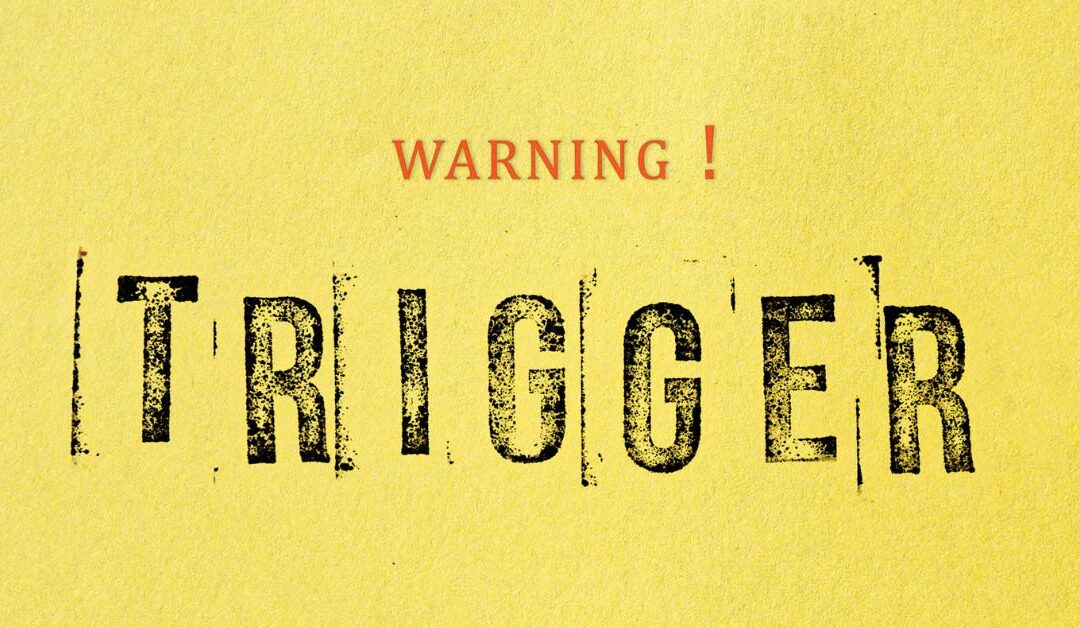
Unleash Personal Transformation in Massachusetts Alcohol Rehab
In the throes of alcohol addiction, it might seem like personal transformation is an impossible feat. However, with the right support, resources, and determination, individuals can turn their lives around and break free from the chains of alcoholism. In Massachusetts, alcohol rehab centers are at the forefront of offering help and hope to those seeking to unleash their personal transformation.
The Alcohol Problem in Massachusetts
Tackling Alcohol Addiction in Massachusetts: A Fight for Lives
Like numerous states across the country, Massachusetts is facing a significant challenge due to alcohol addiction among its residents. The escalated consumption rates leading to health issues and social consequences underscore the vital need for proficient rehabilitation facilities in the state. However, as we delve into these statistics, it is essential to remember that each number signifies an individual, a family, and a community in distress. The battle against alcohol addiction is not merely a fight against figures; it is a fight for human lives.
Effective Rehabilitation at Northstar Recovery Center: A Beacon of Hope
In the midst of this struggle, a beacon of hope emerges – Northstar Recovery Center, a renowned alcohol rehab facility in Massachusetts. Northstar Recovery Center isn’t just about treating the numbers; it’s about treating individuals. It’s about understanding that behind every statistic is a person, a family, a community waiting to heal, and helping them take the necessary steps towards recovery.
Northstar Recovery Center stands ready to provide the support, guidance, and professional care required to combat alcohol addiction. But change begins with a choice. Choose to make that call, choose to take that first step. Choose recovery.
Join the Partial Hospitalization Program (PHP) and Intensive Outpatient Program (IOP) at Northstar Recovery Center
Northstar Recovery Center offers comprehensive programs such as its Partial Hospitalization Program (PHP) and Intensive Outpatient Program (IOP). These programs are tailored to address your unique needs and assist you in regaining control of your life. Designed to equip you with the necessary skills and tools, these programs lay a robust foundation for a life beyond alcohol addiction.
It’s time to redefine your life beyond the confines of addiction. Choose growth. Choose healing. Choose Northstar’s PHP and IOP. Remember, your decision today determines your reality tomorrow. Don’t let addiction have the last word. Let recovery be your story. Let Northstar be a part of your journey.
Don’t Hesitate, Act Now
The battle against alcohol addiction in Massachusetts is indeed a daunting one. But remember, you’re not alone in this fight. Northstar Recovery Center is here, ready to stand by your side, providing the necessary resources and support to conquer this challenge.
Your journey towards a healthier, happier future can start today. Reach out to Northstar Recovery Center, embrace their PHP and IOP, and take the first step towards your new life. Don’t wait, don’t hesitate. The time for action is now. Contact Northstar Recovery Center today.
Understanding Alcohol Addiction
To effectively combat alcohol addiction, it’s crucial to understand the nature of the condition. Alcohol addiction isn’t merely a matter of willpower. It’s a complex interplay of genetic, environmental, and psychological factors. It’s a chronic disease characterized by compulsive alcohol use, loss of control over alcohol intake, and a negative emotional state when not drinking.
The Journey of Recovery
Overcoming alcohol addiction isn’t simply about putting a stop to drinking; it’s an expansive journey of personal evolution and growth. This journey stretches beyond the mere physical act of detoxification, reaching into the realms of emotional and mental recovery and restoration. It’s about the acquisition of new coping mechanisms to navigate life’s stressors and complexities without resorting to alcohol. It involves mending and strengthening relationships that may have been damaged by the addiction, fostering understanding, forgiveness, and renewed bonds with loved ones.
Moreover, this journey is about reshaping one’s self-perception and forging an identity that is not dependent on or defined by alcohol. It’s about rediscovering oneself and one’s capabilities, desires, and dreams that may have been overshadowed by the haze of addiction. It’s a process of re-establishing self-worth, self-confidence, and a sense of purpose that is not tied to alcohol consumption.
Indeed, this path to recovery is fraught with obstacles and difficulties. There will be moments of doubt, temptation, and struggle. However, the journey is also laden with profound rewards that extend beyond sobriety. It offers the chance to regain control of one’s life, to mend broken relationships, and to discover a sense of self that is stronger and more resilient. It provides the opportunity to embrace a healthier, more fulfilling life, free from the chains of addiction. In essence, recovery from alcohol addiction is a journey of transformation that leads to a renewed sense of self and a life of enriched potential.
The Role of Alcohol Rehab in Massachusetts: A Closer Look
Alcohol addiction is a complex issue that affects not just the individual, but also their family, friends, and the larger community. In Massachusetts, a state known for its rich history and prestigious educational institutions, the problem of alcohol addiction is as real and pressing as it is anywhere else in the country. Here, alcohol rehab centers play a vital role in addressing this issue, providing individuals with the tools, support, and environment necessary to overcome addiction and reclaim their lives.
Understanding the Need for Alcohol Rehab in Massachusetts
Alcohol addiction is a multifaceted problem that requires a comprehensive approach to treatment. It is not just a physical dependence on alcohol, but also involves psychological, social, and behavioral aspects. Overcoming alcohol addiction often requires more than just the will to stop drinking; it requires professional help to address the root causes of addiction, manage withdrawal symptoms, and develop healthier coping strategies.
In Massachusetts, where the rate of alcohol abuse is a significant public health concern, the role of alcohol rehab centers is crucial. They serve as a beacon of hope for individuals who are struggling with addiction, offering a structured and supportive environment where they can focus on recovery.
The Therapeutic Environment of Rehab Centers
One of the defining features of alcohol rehab centers in Massachusetts is the therapeutic environment they create. These centers are designed to be safe spaces where individuals can express their thoughts and feelings without fear of judgment. They are places of understanding and empathy, where the focus is on healing and growth.
In these environments, individuals are not defined by their addiction. Instead, they are seen as people with unique experiences, strengths, and potential. They are encouraged to rediscover who they are apart from alcohol, to rebuild their self-esteem, and to envision a future where they are in control, not alcohol.
The Comprehensive Approach to Treatment
 Alcohol rehab centers in Massachusetts offer a comprehensive approach to treatment. This means they address not just the physical aspects of addiction, but also the psychological, social, and behavioral aspects. Treatment typically involves a combination of detoxification, therapy, medication (if needed), and aftercare planning.
Alcohol rehab centers in Massachusetts offer a comprehensive approach to treatment. This means they address not just the physical aspects of addiction, but also the psychological, social, and behavioral aspects. Treatment typically involves a combination of detoxification, therapy, medication (if needed), and aftercare planning.
Detoxification is the first step in treatment, helping individuals to safely withdraw from alcohol. Therapy, which may be individual, group, or family-based, helps individuals to identify the root causes of their addiction, develop healthier coping strategies, and repair damaged relationships. Medication may be used to help manage withdrawal symptoms, reduce cravings, or treat any co-occurring mental health issues. Finally, aftercare planning helps individuals to transition back into their daily lives and provides ongoing support to help them maintain their sobriety.
The Team of Professionals at Rehab Centers
At alcohol rehab centers in Massachusetts, individuals are not alone in their journey of recovery. They are supported by a team of professionals who are committed to helping them overcome addiction. This team typically includes doctors, nurses, therapists, and support staff, all of whom bring their expertise and compassion to the table.
Doctors and nurses oversee the detoxification process and manage any physical health issues that may arise during treatment. Therapists provide a safe and supportive space for individuals to explore their thoughts and feelings, challenge negative thought patterns, and develop healthier coping strategies. Support staff ensure that the center runs smoothly and that individuals have everything they need to focus on their recovery.
Types of Alcohol Rehab Programs in Massachusetts
There are several types of alcohol rehab programs available in Massachusetts, each designed to cater to different needs and circumstances. These include inpatient rehab, outpatient rehab, partial hospitalization programs (PHP), intensive outpatient programs (IOP), and sober living homes. Understanding the features, advantages, and suitability of each can help individuals make an informed decision about their treatment.
Inpatient Rehab
Inpatient rehab provides a structured and intensive treatment environment where individuals can focus entirely on their recovery. With 24/7 medical supervision and a range of therapeutic activities, inpatient rehab offers a comprehensive approach to overcoming alcohol addiction.
Outpatient Rehab
For those who cannot commit to full-time treatment, outpatient rehab offers a more flexible approach. It allows individuals to attend treatment sessions while continuing with their daily responsibilities. While it requires a high level of self-discipline, it can be a practical and effective option for many.
Partial Hospitalization Program (PHP) and Intensive Outpatient Program (IOP)
PHP and IOP offer a middle ground between inpatient and outpatient rehab. They provide more intensive treatment than standard outpatient rehab but with the flexibility to return home at the end of the day. They are ideal for those who require a high level of care but also need to maintain certain daily commitments.
Sober Living Homes
Sober living homes provide a safe and supportive living environment for individuals transitioning from rehab back to their daily life. They offer a community of peers who understand the struggles and triumphs of recovery, providing mutual support and accountability.
The Power of Personal Transformation in Rehab
The true power of rehab lies in its ability to facilitate personal transformation. This isn’t just about overcoming physical dependence on alcohol. It’s about changing attitudes, behaviors, and thought patterns that have contributed to addiction. It’s about developing healthier coping strategies, building stronger relationships, and rediscovering oneself without alcohol. It’s about becoming the best version of oneself.
Facing the Challenge of Alcohol Addiction in Massachusetts
If you, or someone you care about, are grappling with alcohol addiction, it’s essential to realize that support is just around the corner. It indeed requires bravery to acknowledge the need for assistance, but it’s this very admission that ignites the path toward recovery. Don’t hesitate, to connect with an alcohol rehab center like Northstar Recovery Center in Massachusetts, and commence your journey of profound personal growth.
Take Action and Reach Out to Northstar Recovery Center
 Facing alcohol addiction can be daunting, but remember, with the right assistance and treatment plan, it’s entirely possible to triumph over it and radically transform your life. Alcohol rehab centers in Massachusetts, especially Northstar Recovery Center, provide all the necessary resources, mentorship, and encouragement required to enable this life-changing transformation. Remember, recovery is not a destination, it’s a lifelong journey, and every single journey starts with a simple yet crucial step. Don’t wait another day. Act now. Contact Northstar Recovery Center and take that decisive first step today.
Facing alcohol addiction can be daunting, but remember, with the right assistance and treatment plan, it’s entirely possible to triumph over it and radically transform your life. Alcohol rehab centers in Massachusetts, especially Northstar Recovery Center, provide all the necessary resources, mentorship, and encouragement required to enable this life-changing transformation. Remember, recovery is not a destination, it’s a lifelong journey, and every single journey starts with a simple yet crucial step. Don’t wait another day. Act now. Contact Northstar Recovery Center and take that decisive first step today.
Experience their robust Partial Hospitalization Program (PHP) and Intensive Outpatient Program (IOP), tailored to meet your individual needs and help you regain control of your life. These programs are designed to provide you with the skills and tools necessary to build a strong foundation for a life free from alcohol. Don’t let addiction define you. Choose life. Choose recovery. Choose Northstar. Your journey to a healthier, happier future starts with a simple phone call. Reach out to Northstar Recovery Center today.



 Substance abuse is a significant challenge that affects communities across the United States, and cities like Springfield, MA, and Boston, Massachusetts are no exception. For years, individuals and families in these areas have been grappling with the devastating effects of alcohol and drug addiction. Today, however, a new beacon of hope rises in Springfield – Northstar Recovery Center.
Substance abuse is a significant challenge that affects communities across the United States, and cities like Springfield, MA, and Boston, Massachusetts are no exception. For years, individuals and families in these areas have been grappling with the devastating effects of alcohol and drug addiction. Today, however, a new beacon of hope rises in Springfield – Northstar Recovery Center. Alcohol is the most commonly abused substance in Springfield, Massachusetts
Alcohol is the most commonly abused substance in Springfield, Massachusetts The journey to recovery can be challenging, but at Northstar Recovery Center, we believe that everyone has the capacity to overcome addiction and transform their lives. Our expert team of addiction specialists is dedicated to guiding our clients on this path, providing comprehensive, individualized treatment and unwavering support every step of the way.
The journey to recovery can be challenging, but at Northstar Recovery Center, we believe that everyone has the capacity to overcome addiction and transform their lives. Our expert team of addiction specialists is dedicated to guiding our clients on this path, providing comprehensive, individualized treatment and unwavering support every step of the way.
 Trauma is a term used to describe experiences that are profoundly distressing or disturbing, events that leave a deep and indelible mark on an individual’s psyche. These events could range from a single, life-altering incident to a series of recurrent episodes that persist over a significant period. Such experiences, while varied in their nature, all share the commonality of having the capacity to deeply affect an individual’s mental, physical, and emotional well-being, often leaving lasting impacts that permeate various facets of their lives.
Trauma is a term used to describe experiences that are profoundly distressing or disturbing, events that leave a deep and indelible mark on an individual’s psyche. These events could range from a single, life-altering incident to a series of recurrent episodes that persist over a significant period. Such experiences, while varied in their nature, all share the commonality of having the capacity to deeply affect an individual’s mental, physical, and emotional well-being, often leaving lasting impacts that permeate various facets of their lives. One of the pivotal aims of trauma-informed care is the fostering of resilience. Recognizing the strength and determination it takes to confront past traumas and to embark on the path to recovery, this approach actively nurtures the inherent resilience within each individual. Through this process, it encourages individuals to harness their inner strength, inspiring them to persevere even in the face of setbacks and challenges.
One of the pivotal aims of trauma-informed care is the fostering of resilience. Recognizing the strength and determination it takes to confront past traumas and to embark on the path to recovery, this approach actively nurtures the inherent resilience within each individual. Through this process, it encourages individuals to harness their inner strength, inspiring them to persevere even in the face of setbacks and challenges.
 The cue is the trigger or stimulus that initiates the habit loop. It can be an internal or external prompt that prompts a specific behavior. Cues can take various forms, such as a specific time of day, a particular location, an emotional state, or the presence of certain people or objects. For example, a cue for someone struggling with alcohol addiction might be walking past a bar or experiencing stress at work.
The cue is the trigger or stimulus that initiates the habit loop. It can be an internal or external prompt that prompts a specific behavior. Cues can take various forms, such as a specific time of day, a particular location, an emotional state, or the presence of certain people or objects. For example, a cue for someone struggling with alcohol addiction might be walking past a bar or experiencing stress at work. Don’t wait another day to take the courageous step toward a healthier, substance-free life. Contact Northstar Recovery Center today and take advantage of our compassionate, personalized addiction treatment programs. Call [phone number] to speak with one of our caring intake specialists and discuss how we can support your recovery journey.
Don’t wait another day to take the courageous step toward a healthier, substance-free life. Contact Northstar Recovery Center today and take advantage of our compassionate, personalized addiction treatment programs. Call [phone number] to speak with one of our caring intake specialists and discuss how we can support your recovery journey.
 Substance abuse triggers can be broadly categorized into two types: external and internal stimuli. External triggers are factors in the environment that elicit cravings or thoughts of substance use. They can include people, places, objects, or situations associated with past substance use experiences. For instance, walking by a bar where one used to drink heavily or being in the presence of friends who still engage in substance abuse can act as external triggers that evoke cravings.
Substance abuse triggers can be broadly categorized into two types: external and internal stimuli. External triggers are factors in the environment that elicit cravings or thoughts of substance use. They can include people, places, objects, or situations associated with past substance use experiences. For instance, walking by a bar where one used to drink heavily or being in the presence of friends who still engage in substance abuse can act as external triggers that evoke cravings. Triggers play a significant role in initiating and perpetuating the relapse cycle. Emotional triggers, cognitive triggers, and cravings form a complex interplay that can lead individuals from emotional distress to substance use. Triggers act as catalysts, reigniting the desire for substances and reinforcing the associations between substances and emotional relief.
Triggers play a significant role in initiating and perpetuating the relapse cycle. Emotional triggers, cognitive triggers, and cravings form a complex interplay that can lead individuals from emotional distress to substance use. Triggers act as catalysts, reigniting the desire for substances and reinforcing the associations between substances and emotional relief.